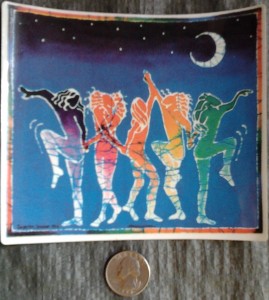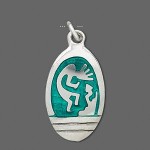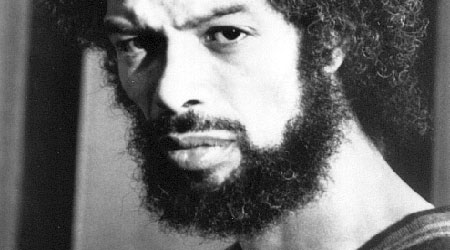News from Acorn Community: Earthquake at our Farm – at the Epicenter!
Posted on August 23, 2011 by Lisa
Our seed farm and office are located just outside the town of Mineral, Virginia, the epicenter of today’s earthquake! One map we’ve seen places the epicenter just 1.5 miles away from us.
No one’s hurt and all our buildings appear to be fine, except for some possible minor damage to chimneys.
A few broken jars is the extent of the damage to our inventory, and there’s a fair amount of clutter from things falling in the office.
The North Anna nuclear power plant (less than 10 miles away) shut down automatically, and they say there is no damage. We’re watching for updates as it’s inspected!
The phone lines have been in and out, but during the aftershocks, most of us didn’t want to be inside, even to answer the phone. And we felt quite a few aftershocks! Some of us, after coming back inside (to call relatives, clean up, etc.) ran out a couple of times again with the aftershocks.
We’ve been putting things back in place, such as scattered seed packets, and getting back to life as usual – while bracing for the hurricane that’s supposed to hit our region on Saturday.
Thanks to all who have e-mailed and called to check on how we’re doing. We enjoyed seeing everyone at our farm for last Saturday’s tomato tasting, and we’re glad that wasn’t when the earthquake hit!
Subscribe to this blog's RSS feed
“I Do Not Want Mercy, I Want You To Join Me”
Tim DeChristopher, who was sentenced Tuesday to two years in federal prison and a $10,000 fine for ‘disrupting’ a Bureau of Land Management auction in 2008, had an opportunity to address the court and the judge immediately before his sentence was announced. This is his statement: “… those who write the rules are those who profit from the status quo. If we want to change that status quo, we might have to work outside of those rules because the legal pathways available to us have been structured precisely to make sure we don’t make any substantial change.” (Portrait by Robert Shetterly – Used with Permission) http://www.americanswhotellthetruth.org
“… those who write the rules are those who profit from the status quo. If we want to change that status quo, we might have to work outside of those rules because the legal pathways available to us have been structured precisely to make sure we don’t make any substantial change.” (Portrait by Robert Shetterly – Used with Permission) http://www.americanswhotellthetruth.org
Thank you for the opportunity to speak before the court. When I first met Mr. Manross, the sentencing officer who prepared the presentence report, he explained that it was essentially his job to “get to know me.” He said he had to get to know who I really was and why I did what I did in order to decide what kind of sentence was appropriate. I was struck by the fact that he was the first person in this courthouse to call me by my first name, or even really look me in the eye. I appreciate this opportunity to speak openly to you for the first time. I’m not here asking for your mercy, but I am here asking that you know me.
Mr. Huber has leveled a lot of character attacks at me, many of which are contrary to Mr. Manross’s report. While reading Mr Huber’s critiques of my character and my integrity, as well as his assumptions about my motivations, I was reminded that Mr Huber and I have never had a conversation. Over the two and half years of this prosecution, he has never asked my any of the questions that he makes assumptions about in the government’s report. Apparently, Mr. Huber has never considered it his job to get to know me, and yet he is quite willing to disregard the opinions of the one person who does see that as his job.
There are alternating characterizations that Mr Huber would like you to believe about me. In one paragraph, the government claims I “played out the parts of accuser, jury, and judge as he determined the fate of the oil and gas lease auction and its intended participants that day.” In the very next paragraph, they claim “It was not the defendant’s crimes that effected such a change.” Mr Huber would lead you to believe that I’m either a dangerous criminal who holds the oil and gas industry in the palm of my hand, or I’m just an incompetent child who didn’t affect the outcome of anything. As evidenced by the continued back and forth of contradictory arguments in the government’s memorandum, they’re not quite sure which of those extreme caricatures I am, but they are certain that I am nothing in between. Rather than the job of getting to know me, it seems Mr Huber prefers the job of fitting me into whatever extreme characterization is most politically expedient at the moment.
In nearly every paragraph, the government’s memorandum uses the words lie, lied, lying, liar. It makes me want to thank whatever clerk edited out the words “pants on fire.” Their report doesn’t mention the fact that at the auction in question, the first person who asked me what I was doing there was Agent Dan Love. And I told him very clearly that I was there to stand in the way of an illegitimate auction that threatened my future. I proceeded to answer all of his questions openly and honestly, and have done so to this day when speaking about that auction in any forum, including this courtroom. The entire basis for the false statements charge that I was convicted of was the fact that I wrote my real name and address on a form that included the words “bona fide bidder.” When I sat there on the witness stand, Mr Romney asked me if I ever had any intention of being a bona fide bidder. I responded by asking Mr Romney to clarify what “bona fide bidder” meant in this context. Mr Romney then withdrew the question and moved on to the next subject. On that right there is the entire basis for the government’s repeated attacks on my integrity. Ambition should be made of sterner stuff, your honor.
Mr Huber also makes grand assumptions about my level of respect for the rule of law. The government claims a long prison sentence is necessary to counteract the political statements I’ve made and promote a respect for the law. The only evidence provided for my lack of respect for the law is political statements that I’ve made in public forums. Again, the government doesn’t mention my actions in regard to the drastic restrictions that were put upon my defense in this courtroom. My political disagreements with the court about the proper role of a jury in the legal system are probably well known. I’ve given several public speeches and interviews about how the jury system was established and how it has evolved to it’s current state. Outside of this courtroom, I’ve made my views clear that I agree with the founding fathers that juries should be the conscience of the community and a defense against legislative tyranny. I even went so far as to organize a book study group that read about the history of jury nullification. Some of the participants in that book group later began passing out leaflets to the public about jury rights, as is their right. Mr Huber was apparently so outraged by this that he made the slanderous accusations that I tried to taint the jury. He didn’t specify the extra number of months that I should spend in prison for the heinous activity of holding a book group at the Unitarian Church and quoting Thomas Jefferson in public, but he says you should have “little tolerance for this behavior.”
But here is the important point that Mr Huber would rather ignore. Despite my strong disagreements with the court about the Constitutional basis for the limits on my defense, while I was in this courtroom I respected the authority of the court. Whether I agreed with them or not, I abided by the restrictions that you put on me and my legal team. I never attempted to “taint” the jury, as Mr Huber claimed, by sharing any of the relevant facts about the auction in question that the court had decided were off limits. I didn’t burst out and tell the jury that I successfully raised the down payment and offered it to the BLM. I didn’t let the jury know that the auction was later reversed because it was illegitimate in the first place. To this day I still think I should have had the right to do so, but disagreement with the law should not be confused with disrespect for the law.
My public statements about jury nullification were not the only political statements that Mr Huber thinks I should be punished for. As the government’s memorandum points out, I have also made public statements about the value of civil disobedience in bringing the rule of law closer to our shared sense of justice. In fact, I have openly and explicitly called for nonviolent civil disobedience against mountaintop removal coal mining in my home state of West Virginia. Mountaintop removal is itself an illegal activity, which has always been in violation of the Clean Water Act, and it is an illegal activity that kills people. A West Virginia state investigation found that Massey Energy had been cited with 62,923 violations of the law in the ten years preceding the disaster that killed 29 people last year. The investigation also revealed that Massey paid for almost none of those violations because the company provided millions of dollars worth of campaign contributions that elected most of the appeals court judges in the state. When I was growing up in West Virginia, my mother was one of many who pursued every legal avenue for making the coal industry follow the law. She commented at hearings, wrote petitions and filed lawsuits, and many have continued to do ever since, to no avail. I actually have great respect for the rule of law, because I see what happens when it doesn’t exist, as is the case with the fossil fuel industry. Those crimes committed by Massey Energy led not only to the deaths of their own workers, but to the deaths of countless local residents, such as Joshua McCormick, who died of kidney cancer at age 22 because he was unlucky enough to live downstream from a coal mine. When a corrupted government is no longer willing to uphold the rule of law, I advocate that citizens step up to that responsibility.
This is really the heart of what this case is about. The rule of law is dependent upon a government that is willing to abide by the law. Disrespect for the rule of law begins when the government believes itself and its corporate sponsors to be above the law.
Mr Huber claims that the seriousness of my offense was that I “obstructed lawful government proceedings.” But the auction in question was not a lawful proceeding. I know you’ve heard another case about some of the irregularities for which the auction was overturned. But that case did not involve the BLM’s blatant violation of Secretarial Order 3226, which was a law that went into effect in 2001 and required the BLM to weigh the impacts on climate change for all its major decisions, particularly resource development. A federal judge in Montana ruled last year that the BLM was in constant violation of this law throughout the Bush administration. In all the proceedings and debates about this auction, no apologist for the government or the BLM has ever even tried to claim that the BLM followed this law. In both the December 2008 auction and the creation of the Resource Management Plan on which this auction was based, the BLM did not even attempt to follow this law.
And this law is not a trivial regulation about crossing t’s or dotting i’s to make some government accountant’s job easier. This law was put into effect to mitigate the impacts of catastrophic climate change and defend a livable future on this planet. This law was about protecting the survival of young generations. That’s kind of a big deal. It’s a very big deal to me. If the government is going to refuse to step up to that responsibility to defend a livable future, I believe that creates a moral imperative for me and other citizens. My future, and the future of everyone I care about, is being traded for short term profits. I take that very personally. Until our leaders take seriously their responsibility to pass on a healthy and just world to the next generation, I will continue this fight.
The government has made the claim that there were legal alternatives to standing in the way of this auction. Particularly, I could have filed a written protest against certain parcels. The government does not mention, however, that two months prior to this auction, in October 2008, a Congressional report was released that looked into those protests. The report, by the House committee on public lands, stated that it had become common practice for the BLM to take volunteers from the oil and gas industry to process those permits. The oil industry was paying people specifically to volunteer for the industry that was supposed to be regulating it, and it was to those industry staff that I would have been appealing. Moreover, this auction was just three months after the New York Times reported on a major scandal involving Department of the Interior regulators who were taking bribes of sex and drugs from the oil companies that they were supposed to be regulating. In 2008, this was the condition of the rule of law, for which Mr Huber says I lacked respect. Just as the legal avenues which people in West Virginia have been pursuing for 30 years, the legal avenues in this case were constructed precisely to protect the corporations who control the government.
The reality is not that I lack respect for the law; it’s that I have greater respect for justice. Where there is a conflict between the law and the higher moral code that we all share, my loyalty is to that higher moral code. I know Mr Huber disagrees with me on this. He wrote that “The rule of law is the bedrock of our civilized society, not acts of ‘civil disobedience’ committed in the name of the cause of the day.” That’s an especially ironic statement when he is representing the United States of America, a place where the rule of law was created through acts of civil disobedience. Since those bedrock acts of civil disobedience by our founding fathers, the rule of law in this country has continued to grow closer to our shared higher moral code through the civil disobedience that drew attention to legalized injustice. The authority of the government exists to the degree that the rule of law reflects the higher moral code of the citizens, and throughout American history, it has been civil disobedience that has bound them together.
This philosophical difference is serious enough that Mr Huber thinks I should be imprisoned to discourage the spread of this idea. Much of the government’s memorandum focuses on the political statements that I’ve made in public. But it hasn’t always been this way. When Mr Huber was arguing that my defense should be limited, he addressed my views this way: “The public square is the proper stage for the defendant’s message, not criminal proceedings in federal court.” But now that the jury is gone, Mr. Huber wants to take my message from the public square and make it a central part of these federal court proceedings. I have no problem with that. I’m just as willing to have those views on display as I’ve ever been.
The government’s memorandum states, “As opposed to preventing this particular defendant from committing further crimes, the sentence should be crafted ‘to afford adequate deterrence to criminal conduct’ by others.” Their concern is not the danger that I present, but the danger presented by my ideas and words that might lead others to action. Perhaps Mr Huber is right to be concerned. He represents the United States Government. His job is to protect those currently in power, and by extension, their corporate sponsors. After months of no action after the auction, the way I found out about my indictment was the day before it happened, Pat Shea got a call from an Associated Press reporter who said, “I just wanted to let you know that tomorrow Tim is going to be indicted, and this is what the charges are going to be.” That reporter had gotten that information two weeks earlier from an oil industry lobbyist. Our request for disclosure of what role that lobbyist played in the US Attorney’s office was denied, but we know that she apparently holds sway and that the government feels the need to protect the industry’s interests.
The things that I’ve been publicly saying may indeed be threatening to that power structure. There have been several references to the speech I gave after the conviction, but I’ve only ever seen half of one sentence of that speech quoted. In the government’s report, they actually had to add their own words to that one sentence to make it sound more threatening. But the speech was about empowerment. It was about recognizing our interconnectedness rather than viewing ourselves as isolated individuals. The message of the speech was that when people stand together, they no longer have to be exploited by powerful corporations. Alienation is perhaps the most effective tool of control in America, and every reminder of our real connectedness weakens that tool.
But the sentencing guidelines don’t mention the need to protect corporations or politicians from ideas that threaten their control. The guidelines say “protect the public.” The question is whether the public is helped or harmed by my actions. The easiest way to answer that question is with the direct impacts of my action. As the oil executive stated in his testimony, the parcels I didn’t bid on averaged $12 per acre, but the ones I did bid on averaged $125. Those are the prices paid for public property to the public trust. The industry admits very openly that they were getting those parcels for an order of magnitude less than what they were worth. Not only did those oil companies drive up the prices to $125 during the bidding, they were then given an opportunity to withdraw their bids once my actions were explained. They kept the parcels, presumably because they knew they were still a good deal at $125. The oil companies knew they were getting a steal from the American people, and now they’re crying because they had to pay a little closer to what those parcels were actually worth. The government claims I should be held accountable for the steal the oil companies didn’t get. The government’s report demands $600,000 worth of financial impacts for the amount which the oil industry wasn’t able to steal from the public.
That extra revenue for the public became almost irrelevant, though, once most of those parcels were revoked by Secretary Salazar. Most of the parcels I won were later deemed inappropriate for drilling. In other words, the highest and best value to the public for those particular lands was not for oil and gas drilling. Had the auction gone off without a hitch, it would have been a loss for the public. The fact that the auction was delayed, extra attention was brought to the process, and the parcels were ultimately revoked was a good thing for the public.
More generally, the question of whether civil disobedience is good for the public is a matter of perspective. Civil disobedience is inherently an attempt at change. Those in power, whom Mr Huber represents, are those for whom the status quo is working, so they always see civil disobedience as a bad thing. The decision you are making today, your honor, is what segment of the public you are meant to protect. Mr Huber clearly has cast his lot with that segment who wishes to preserve the status quo. But the majority of the public is exploited by the status quo far more than they are benefited by it. The young are the most obvious group who is exploited and condemned to an ugly future by letting the fossil fuel industry call the shots. There is an overwhelming amount of scientific research, some of which you received as part of our proffer on the necessity defense, that reveals the catastrophic consequences which the young will have to deal with over the coming decades.
But just as real is the exploitation of the communities where fossil fuels are extracted. As a native of West Virginia, I have seen from a young age that the exploitation of fossil fuels has always gone hand in hand with the exploitation of local people. In West Virginia, we’ve been extracting coal longer than anyone else. And after 150 years of making other people rich, West Virginia is almost dead last among the states in per capita income, education rates and life expectancy. And it’s not an anomaly. The areas with the richest fossil fuel resources, whether coal in West Virginia and Kentucky, or oil in Louisiana and Mississippi, are the areas with the lowest standards of living. In part, this is a necessity of the industry. The only way to convince someone to blow up their backyard or poison their water is to make sure they are so desperate that they have no other option. But it is also the nature of the economic model. Since fossil fuels are a limited resources, whoever controls access to that resource in the beginning gets to set all the terms. They set the terms for their workers, for the local communities, and apparently even for the regulatory agencies. A renewable energy economy is a threat to that model. Since no one can control access to the sun or the wind, the wealth is more likely to flow to whoever does the work of harnessing that energy, and therefore to create a more distributed economic system, which leads to a more distributed political system. It threatens the profits of the handful of corporations for whom the current system works, but our question is which segment of the public are you tasked with protecting. I am here today because I have chosen to protect the people locked out of the system over the profits of the corporations running the system. I say this not because I want your mercy, but because I want you to join me.
After this difference of political philosophies, the rest of the sentencing debate has been based on the financial loss from my actions. The government has suggested a variety of numbers loosely associated with my actions, but as of yet has yet to establish any causality between my actions and any of those figures. The most commonly discussed figure is perhaps the most easily debunked. This is the figure of roughly $140,000, which is the amount the BLM originally spent to hold the December 2008 auction. By definition, this number is the amount of money the BLM spent before I ever got involved. The relevant question is what the BLM spent because of my actions, but apparently that question has yet to be asked. The only logic that relates the $140,000 figure to my actions is if I caused the entire auction to be null and void and the BLM had to start from scratch to redo the entire auction. But that of course is not the case. First is the prosecution’s on-again-off-again argument that I didn’t have any impact on the auction being overturned. More importantly, the BLM never did redo the auction because it was decided that many of those parcels should never have been auctioned in the first place. Rather than this arbitrary figure of $140,000, it would have been easy to ask the BLM how much money they spent or will spend on redoing the auction. But the government never asked this question, probably because they knew they wouldn’t like the answer.
The other number suggested in the government’s memorandum is the $166,000 that was the total price of the three parcels I won which were not invalidated. Strangely, the government wants me to pay for these parcels, but has never offered to actually give them to me. When I offered the BLM the money a couple weeks after the auction, they refused to take it. Aside from that history, this figure is still not a valid financial loss from my actions. When we wrote there was no loss from my actions, we actually meant that rather literally. Those three parcels were not evaporated or blasted into space because of my actions, not was the oil underneath them sucked dry by my bid card. They’re still there, and in fact the BLM has already issued public notice of their intent to re-auction those parcels in February of 2012.
The final figure suggested as a financial loss is the $600,000 that the oil company wasn’t able to steal from the public. That completely unsubstantiated number is supposedly the extra amount the BLM received because of my actions. This is when things get tricky. The government’s report takes that $600,000 positive for the BLM and adds it to that roughly $300,000 negative for the BLM, and comes up with a $900,000 negative. With math like that, it’s obvious that Mr Huber works for the federal government.
After most of those figures were disputed in the presentence report, the government claimed in their most recent objection that I should be punished according to the intended financial impact that I intended to cause. The government tries to assume my intentions and then claims, “This is consistent with the testimony that Mr. DeChristopher provided at trial, admitting that his intention was to cause financial harm to others with whom he disagreed.” Now I didn’t get to say a whole lot at the trial, so it was pretty easy to look back through the transcripts. The statement claimed by the government never happened. There was nothing even close enough to make their statement a paraphrase or artistic license. This statement in the government’s objection is a complete fiction. Mr Huber’s inability to judge my intent is revealed in this case by the degree to which he underestimates my ambition. The truth is that my intention, then as now, was to expose, embarrass and hold accountable the oil industry to the extent that it cuts into the $100 billion in annual profits that it makes through exploitation. I actually intended for my actions to play a role in the wide variety of actions that steer the country toward a clean energy economy where those $100 billion in oil profits are completely eliminated. When I read Mr Huber’s new logic, I was terrified to consider that my slightly unrealistic intention to have a $100 billion impact will fetch me several consecutive life sentences. Luckily this reasoning is as unrealistic as it is silly.
A more serious look at my intentions is found in Mr Huber’s attempt to find contradictions in my statements. Mr Huber points out that in public I acted proud of my actions and treated it like a success, while in our sentencing memorandum we claimed that my actions led to “no loss.” On the one hand I think it was a success, and yet I claim it there was no loss. Success, but no loss. Mr Huber presents these ideas as mutually contradictory and obvious proof that I was either dishonest or backing down from my convictions. But for success to be contradictory to no loss, there has to be another assumption. One has to assume that my intent was to cause a loss. But the only loss that I intended to cause was the loss of secrecy by which the government gave away public property for private profit. As I actually stated in the trial, my intent was to shine a light on a corrupt process and get the government to take a second look at how this auction was conducted. The success of that intent is not dependent on any loss. I knew that if I was completely off base, and the government took that second look and decided that nothing was wrong with that auction, the cost of my action would be another day’s salary for the auctioneer and some minor costs of re-auctioning the parcels. But if I was right about the irregularities of the auction, I knew that allowing the auction to proceed would mean the permanent loss of lands better suited for other purposes and the permanent loss of a safe climate. The intent was to prevent loss, but again that is a matter of perspective.
Mr Huber wants you to weigh the loss for the corporations that expected to get public property for pennies on the dollar, but I believe the important factor is the loss to the public which I helped prevent. Again, we come back to this philosophical difference. From any perspective, this is a case about the right of citizens to challenge the government. The US Attorney’s office makes clear that their interest is not only to punish me for doing so, but to discourage others from challenging the government, even when the government is acting inappropriately. Their memorandum states, “To be sure, a federal prison term here will deter others from entering a path of criminal behavior.” The certainty of this statement not only ignores the history of political prisoners, it ignores the severity of the present situation. Those who are inspired to follow my actions are those who understand that we are on a path toward catastrophic consequences of climate change. They know their future, and the future of their loved ones, is on the line. And they know were are running out of time to turn things around. The closer we get to that point where it’s too late, the less people have to lose by fighting back. The power of the Justice Department is based on its ability to take things away from people. The more that people feel that they have nothing to lose, the more that power begins to shrivel. The people who are committed to fighting for a livable future will not be discouraged or intimidated by anything that happens here today. And neither will I. I will continue to confront the system that threatens our future. Given the destruction of our democratic institutions that once gave citizens access to power, my future will likely involve civil disobedience. Nothing that happens here today will change that. I don’t mean that in any sort of disrespectful way at all, but you don’t have that authority. You have authority over my life, but not my principles. Those are mine alone.
I’m not saying any of this to ask you for mercy, but to ask you to join me. If you side with Mr Huber and believe that your role is to discourage citizens from holding their government accountable, then you should follow his recommendations and lock me away. I certainly don’t want that. I have no desire to go to prison, and any assertion that I want to be even a temporary martyr is false. I want you to join me in standing up for the right and responsibility of citizens to challenge their government. I want you to join me in valuing this country’s rich history of nonviolent civil disobedience. If you share those values but think my tactics are mistaken, you have the power to redirect them. You can sentence me to a wide range of community service efforts that would point my commitment to a healthy and just world down a different path. You can have me work with troubled teens, as I spent most of my career doing. You can have me help disadvantaged communities or even just pull weeds for the BLM. You can steer that commitment if you agree with it, but you can’t kill it. This is not going away. At this point of unimaginable threats on the horizon, this is what hope looks like. In these times of a morally bankrupt government that has sold out its principles, this is what patriotism looks like. With countless lives on the line, this is what love looks like, and it will only grow. The choice you are making today is what side are you on.
Tim DeChristopher is a climate activist and board member for the climate justice organization Peaceful Uprising.
From Laird Schaub: How Strong to Make the Safety Net
 From Wren: Laird Schaub is a friend from Sandhill Community in Missouri, who teaches facilitation and consensus. He’s active in Fellowship for Intentional Community. Thanks, Laird, for allowing me to repost your article!
From Wren: Laird Schaub is a friend from Sandhill Community in Missouri, who teaches facilitation and consensus. He’s active in Fellowship for Intentional Community. Thanks, Laird, for allowing me to repost your article!
____________________________
About 12 years ago I recall the first time FIC discussed the potential for intentional communities providing a safety net for people with special needs. Under Reagan’s tenure in the ’80s, the federal government went through a massive policy change whereby support for disadvantaged groups was deinstitutionalized. With the Boomer population about to enter retirement age, it didn’t take a math degree to predict the coming train wreck. Why couldn’t communities pick up some of the slack?
There’s no doubt that communities are well structured to offer this kind of help (think about the challenges of aging, mental health, developmental disabilities, physical disabilities, recovery from trauma—there are myriad populations that could benefit from the dignity and caring distinctly possible in group settings). That said, I want to explore the tender dynamics of why it’s hard to take that very far, unless the community makes an explicit choice to go in that direction.
To be sure, there are a number of communities that have chosen to define themselves based on services to disadvantaged segments of the population. Here’s a sampling of some well-established examples:
o Camphill Villages
Inspired by the philosophy of Rudolph Steiner, these groups offer residential support for the developmentally disabled and have been around for 50 years. There are currently 13 offerings in North America, with others abroad.
o Gould Farm
This community in Monterey MA provides residential therapeutic treatment for the mentally ill. It’s been around since 1913—two wall calendars short of a century!
o Innisfree Village
This community in Crozet VA offers support for people with intellectual disabilities and is celebrating its 40th anniversary this year.
o L’Arche
Inspired by the writings of Jean Vanier, this movement started in France in 1964, got a foothold in the US in 1972, and has 17 residential communities in America today, servicing those with intellectual disabilities.
With these solid examples, couldn’t the wider Communities Movement do more on a less formal basis? Perhaps.
Addition by Subtraction
For the most part, intentional communities aim to create a superior lifestyle for their members by purposefully downshifting into the slower lanes of traffic. Community living encourages members to get off the production and consumption treadmill, to slow down, build smaller houses, nurture connections, and share more. Following this path leads to less doing and more being, crafting a quality life on fewer resources. Sure people want security, but this is increasingly being defined as the quality of one’s relationships, rather than the quantity of one’s bank account.
Thus, even as communities aspire to meet their own financial needs, they actively work to whittle down what those needs are, and don’t particularly aspire to make much more than they need.
While most groups willingly stretch to help their own members in need, it is uphill asking communities to set aside resources (or work harder to generate those resources) for the purpose of creating surplus to aid unknown future members. Groups almost never run short of good ideas about how to put surplus resources to use. And if, for some reason, they’re ideas are fully funded, they’re far more likely to ease off the gas and smell more roses now, then to keep chasing dollars and deferring enjoyment of the life’s flower garden to some uncertain future.
Digesting this, it’s understandable that communities rarely get excited about tackling additional responsibilities than the ones they’ve already signed on for. In trying to pioneer sustainable and compassionate culture, they don’t want to swamp their life boat. While they’re typically happy to be an inspiration for other groups focusing on the needs of disadvantaged populations, they’re not likely to take a bigger bite of that particular apple than they already have in their mouth.
The double whammy here is that the disadvantaged groups themselves are, by definition, probably incapable of creating their own communities, and are thus at the mercy of new groups seeing the opportunities in meeting the needs of that client base as a way to ground the community’s mission. While some do, it’s not enough to make up for the (in)difference of contemporary public funding.
We need a different answer, and I think our best hope is for groups to be an inspiration for the neighborhoods and wider communities in which they’re embedded, where the support that intentional communities extend to their members is inspiring for how the many can humanely support the few—without reliance on governmental subsidies.
In an effort to fashion better safety nets, I don’t think we need communities to be salting away more dollars, so much as we need communities to be peppering their neighbors with ideas about how we can create robust services on the local level, built mainly on connection and common sense—giving up on our dependency to a connection with common cents.
Not only do I think we can do it, I think we must.
—Laird Schaub
http://communityandconsensus.blogspot.com/
“Just one more thing…”
Best Facebook Status Ever:
2-Sided Stickers to Make You Smile and Sigh
Are Dragons Nocturnal?
 Are there wild monkeys in Maryland? Do raccoons pitch baseballs? Are dragons nocturnal? I’ve been trying to solve a mystery for the past few nights.
Are there wild monkeys in Maryland? Do raccoons pitch baseballs? Are dragons nocturnal? I’ve been trying to solve a mystery for the past few nights.
I’ve been enjoying the clean forest air, sleeping in a tent behind my cabin on Heathcote Community’s 110 acre wooded land trust. I’m tenting behind my house because, again this year, large black rat snakes have found access into my living space. This time, the story begins with the end of the world:
Remember Harold Camping’s predictions that the world would come to an end last May 21, 2011, at 6pm? Well, around 5pm, I strutted upstairs to where my partner C.T. was napping, to ask him how he wanted to spend the last hour of life. Since we’d just made love about an hour before, I didn’t want to assume he’d choose that. So we sat listing our options when something came crashing down in the kitchen.
“I didn’t like the sound of that,” I said.
“Is the end starting early?” C.T. wondered.
I tip toed about half way down the stairs and hugged the railing as I got confirmation of my fear: There was a four and a half foot black rat snake making its way from a shelf to the top of my refrigerator.
For those of you who don’t follow my website regularly, I don’t own any pet snakes.
“This means I’m not sleeping in this house tonight,” I told C.T. He kept an eye on our intruder’s movements while I gathered up my tent and assorted supplies. We ended up spending a few hours scooping out a level platform for the tent, since the woods is on a slope here. Last year the most level spot we could find still had us inching downhill all night long in our sleep. Now, level and happy, we sleep in a spacious tent while we seek and patch access holes. We have an extension cord and power strip going out to the tent so we have a lovely night stand with a lamp. We can recharge our cellphones and use them for alarm clocks. And we power a fan when needed.
 But even though I’m enjoying the hell out of my tent, someone in the woods is taking exception to my new construction. About a week ago, the assault came from above. With lights out, several times over one night, it sounded almost like someone was dropping a whole bucket of water from above. But it wasn’t raining. The next morning we discovered our rain fly was decorated with some kind of non-mammal excrement. (For this post, I asked C.T. how you spell excrement. He said, “m-e-s-s-y.”) Looking above the area we found very a cool fork of a branch, with an s-shaped twist in it. If I were a bird or a bunch of mating snakes, that would be a comfy roost.
But even though I’m enjoying the hell out of my tent, someone in the woods is taking exception to my new construction. About a week ago, the assault came from above. With lights out, several times over one night, it sounded almost like someone was dropping a whole bucket of water from above. But it wasn’t raining. The next morning we discovered our rain fly was decorated with some kind of non-mammal excrement. (For this post, I asked C.T. how you spell excrement. He said, “m-e-s-s-y.”) Looking above the area we found very a cool fork of a branch, with an s-shaped twist in it. If I were a bird or a bunch of mating snakes, that would be a comfy roost.
But the sheer volume of the excrement and the multiple offenses…snakes? Owl?
 Every night when we enter the tent to go to bed, our dog Tuatha goes with. But he only lasts a few minutes before nuts from the trees above start falling and hitting the tent. Tuatha goes into panic mode and insists we evacuate. And when we show no interest, he scratches on the door of the tent, every dog for himself.
Every night when we enter the tent to go to bed, our dog Tuatha goes with. But he only lasts a few minutes before nuts from the trees above start falling and hitting the tent. Tuatha goes into panic mode and insists we evacuate. And when we show no interest, he scratches on the door of the tent, every dog for himself.
At this point, C.T. calls him scaredy-cat, to which Tuatha has no objection, as long as he can get back into the cabin to spend the night hiding under large heavy furniture. Tuatha apparently prefers the threat of snakes in the house to bombs from above.
For the past few nights, the bombings have been particularly frequent. As a matter of fact, C.T. and I could swear that the nuts are being thrown, not just dropping. They hit so hard. And, here’s the kicker, they’re coming in sideways!
“Maybe the squirrels are annoyed by our lamp and want us to turn out the light,” C.T. guessed.
 “Squirrels are going to stay in their homes at night. They’re not going to risk getting eaten just to throw nuts at us,” I countered. “Although flying squirrels are nocturnal…” We did have a flying squirrel slam into the tent side a couple of nights before.
“Squirrels are going to stay in their homes at night. They’re not going to risk getting eaten just to throw nuts at us,” I countered. “Although flying squirrels are nocturnal…” We did have a flying squirrel slam into the tent side a couple of nights before.
“Maybe they’re frightened or annoyed or jealous of all the sounds we’re making,” C.T. continued, referring to our tendency to be very vocal during sex.
I tried to imagine a squirrel or raccoon with inadequacy issues. “Frightened, maybe,” I answered. “I guess we’re the noisy neighbors of the woods.”
Still we couldn’t place the source or catch anyone in the act. I started pondering the period of time about three years ago when we had other odd occurrences at Heathcote.
I recalled walking in the woods with the Open Classroom kids when we came upon a mass of some almost alien looking substance on the ground, a few feet from the entrance to a small cave. The stuff was greenish-yellowish, slightly more firm than gelatin and in a pile on the leaf litter. There was about a gallon of it.
Was it some kind of fungus or giant frog egg cluster? We couldn’t find any attributes that identified the mass. We were left with only one conclusion, given it’s proximity to the cave: Dragon snot.
 This was the beginning of several months of sightings, almost-sightings, alleged sightings and many clues discovered and debated. At first most of the reports came from kids. But eventually adults also came forward with stories of dragon sightings in the Heathcote forest.
This was the beginning of several months of sightings, almost-sightings, alleged sightings and many clues discovered and debated. At first most of the reports came from kids. But eventually adults also came forward with stories of dragon sightings in the Heathcote forest.
I myself was startled by the dragon up at  Bill Anacker’s house once. I ran a twisted course through the swings in Bill’s yard, barely making it to the front door. The dragon was on my heels so near, that I had to dive trough the oversized doggie door. I didn’t even have time to turn a door knob!
Bill Anacker’s house once. I ran a twisted course through the swings in Bill’s yard, barely making it to the front door. The dragon was on my heels so near, that I had to dive trough the oversized doggie door. I didn’t even have time to turn a door knob!
Over time, sightings became less frequent. I haven’t heard of any lately. But now, with this anomalous event of nuts, dirt clumps and feces being thrown at our tent, I wonder.
There’s nothing like a tent, made of polyfiber only a couple of millimeters thick, staked under fifty-foot trees in a hundred acre wood, to give one pause about one’s place in nature and the food chain. Turn out the light, listen to the quiet of the night, then have it disturbed by tiny bombs, bombs that have been falling to Earth every year for millenia.
For millenia, animals like me have been discovering dragons.
—WT
Please join our Hippie Chick Diaries fan page on Facebook!
Bunny & Box Turtle Crossing
 As I finished making signs to post around Heathcote, advertising my porch sale, my dog Tuatha took advantage of my distraction to slip away for a little “me time” adventure.
As I finished making signs to post around Heathcote, advertising my porch sale, my dog Tuatha took advantage of my distraction to slip away for a little “me time” adventure.
Tuatha knows this distresses me. I want to keep him safe, away from car wheels and copperheads. But I have to admit that, on a hot June day like today, I’d love to slip away and play in the stream, too.
So I loaded my signs and myself into the car and went looking for him. When he runs away, I always have to talk to myself to remain calm and methodical.  Once when I let my anger express itself in driving down the road much too fast, I ran over a groundhog. I felt horrible. And, of course, I realized that it could have been my own lost dog that I killed in an out-of-control moment.
Once when I let my anger express itself in driving down the road much too fast, I ran over a groundhog. I felt horrible. And, of course, I realized that it could have been my own lost dog that I killed in an out-of-control moment.
And today I remembered that awful moment as I talked myself into calm, remembered that I’ve always found him quickly in the past, that he’s much more woods-savvy than I give him credit for, and that I can help him best by breathing and staying connected to my surroundings.
 The Universe likes to reinforce these messages, apparently. As I drove around looking for him, driving at a reasonable speed, a rabbit in the road had one of those squirrel moments and zig zagged under my car. But I was in control and managed to not injure it. Later, on a dirt road, a box turtle was well camouflaged as it walked in the rut. If I weren’t paying attention, I would have flattened it. Instead I moved it.
The Universe likes to reinforce these messages, apparently. As I drove around looking for him, driving at a reasonable speed, a rabbit in the road had one of those squirrel moments and zig zagged under my car. But I was in control and managed to not injure it. Later, on a dirt road, a box turtle was well camouflaged as it walked in the rut. If I weren’t paying attention, I would have flattened it. Instead I moved it.
 Hares and tortoises. I get it. Even The Universe speaks in cliches .
Hares and tortoises. I get it. Even The Universe speaks in cliches .
Of course, my dog was safe in the bowl of Heathcote the whole time. and I caught up with him at our usual rendezvous point, Bill Anacker’s house. He was dripping wet from cooling off in the stream. I couldn’t be mad at him. Okay, I was still a little, but that’s my stuff…
This is the second time in a week Tuatha has snuck off. I am slow to get the message, but I wonder if there’s a way I can help him cool off while staying safe at home. He loves to play in the hose, but if I could find a little yard sale kiddie pool, he could self select. How about that, Tuatha?
Please join our Hippie Chick Diaries fan page on Facebook!
Hippie Chick Diaries Porch Sale: June 10-12; June 24-26, 10am-2pm BENEFITS TOOLBOX CAMP SCHOLARSHIP FUND!
 Buy a business or buy a necklace, I always say. Well, this is the first time I’ve said it and it’s not very witty, so I guess I won’t make a habit of repeating it. But those are your choices!
Buy a business or buy a necklace, I always say. Well, this is the first time I’ve said it and it’s not very witty, so I guess I won’t make a habit of repeating it. But those are your choices!
So many of my friends through Hippie Chick Diaries, Heathcote Community, Spoutwood Farm, Common Ground on the Hill, and other connections have come out to Heathcote Earthings’ many festivals and supported us. We’ve enjoyed our mission of bring handmade, fair trade goods of natural materials to the Mid-Atlantic region.
 Now I am shifting to new education and writing projects, focusing on simple, sustainable living and social technologies such as consensus decisonmaking. I’m cashing out of Heathcote Earthings as a fundraiser for our new Social Technology Toolbox Summer Camp and its scholarship fund!
Now I am shifting to new education and writing projects, focusing on simple, sustainable living and social technologies such as consensus decisonmaking. I’m cashing out of Heathcote Earthings as a fundraiser for our new Social Technology Toolbox Summer Camp and its scholarship fund!
The remaining inventory and infrastructure of my festival business is on display at Heathcote Community in northern Baltimore County, Maryland, for two weekends only! I’ll wheel and deal on armloads of gemstones, handmade musical instruments, incense, buttons, bumperstickers,  scarves, purses and of course, my handmade jewelry. Even the tables are for sale!
scarves, purses and of course, my handmade jewelry. Even the tables are for sale!
These photographs were taken during rare quiet moments in my booth, usually before or after events. I was too busy to document my little shop getting swamped with customers, so you’ll have to take my word that we were very popular, with great-selling collections. Some particular items you see in the photos might be sold out but you get a feel for our store and merchandise. Click on the image for a larger version.
 This porch sale will take place for two weekends only, June 10-12 and June 24-26 for the brief hours of 10 am to 2 pm. It will focus on new merchandise:
This porch sale will take place for two weekends only, June 10-12 and June 24-26 for the brief hours of 10 am to 2 pm. It will focus on new merchandise:
- diamond etched pewter pendants
- handmade earrings
- handmade pendants of gemstones, metal, wood, seeds, recycled glass, lampwork glass, etc.
- handmade rings
 bracelets
bracelets- gemstones hand wrapped in sterling silver
- handmade musical instruments
- handmade batik flags & pennants
- frog mating calls
- hackysacks
- scarves
- purses
- cloth shopping bags with great artwork
- funny buttons
- bumper stickers
 tumbled gemstones & fossils
tumbled gemstones & fossils- incense & burners
- car stickers with beautiful designs
- beads—CRAFTERS COME SEE!
- hand carved onyx figurines
Nearly everything is made out of NATURAL OR RECYCLED MATERIALS and is FAIR TRADE.
VENDORS and FLEA MARKET DEALERS will want to check out this inventory. Or if you have or have considered a FESTIVAL BUSINESS or CRAFT SHOP, this inventory will have you on your way.
 Because I had to pack up every item that didn’t sell after each show, I was very motivated to limit my stock to proven popular sellers. No experiments here!
Because I had to pack up every item that didn’t sell after each show, I was very motivated to limit my stock to proven popular sellers. No experiments here!
And because I was seller and the business’ buyer, I had the great pleasure of only stocking products I was excited about and wanted to sell. I could screen for high quality at affordable prices and go for fair trade because the overhead for a festival business in comparatively low. This means that, whether you want to buy the business or just one necklace, it’s worth the  trip to my porch sale!
trip to my porch sale!
The space in enclosed, so we’re open, rain or shine! Thanks to Heathcote interns Anna and Lauren for helping me finish that job!
HIPPIE CHICK DIARIES PORCH SALE
JUNE 10-12 JUNE 24-26
10 AM TILL 2 PM
21300 HEATHCOTE ROAD FREELAND MD 21053
 GPS, Mapquest or email for directions, curiocoast@comcast.net
GPS, Mapquest or email for directions, curiocoast@comcast.net
__________
I’ll also be offering a few used collections, specifically over fifty used VHS titles, CD’s and DVD’s.
All proceeds from the Hippie Chick Diaries Porch Sale go to support my newest project with C.T. Lawrence Butler, our Social Technology Toolbox Summer Camp! Half of the sale’s income will be earmarked specifically for the Toolbox Camp’s scholarship fund!!!
 As I say goodbye to colorful batiks and hackysacks, the earrings and necklaces I lovingly made (remember necklace salads?) and all those buttons and bumperstickers that made us laugh, I want to thank the many friends, partners and community mates who helped out with Earthings, a little or a lot. I know I’m forgetting people, so remind me! Here’s my list:
As I say goodbye to colorful batiks and hackysacks, the earrings and necklaces I lovingly made (remember necklace salads?) and all those buttons and bumperstickers that made us laugh, I want to thank the many friends, partners and community mates who helped out with Earthings, a little or a lot. I know I’m forgetting people, so remind me! Here’s my list:
 Greg Newswanger
Greg Newswanger- John Fox
- Bob Geissel
- C.T. Butler
- Regina Tassone
- Rita Jane Leisure
- Kwame Bidi
- Karen Stupski
- Davi Post
- Gloria Brooks
- Juji Woodring
- Carol Seddon
- Ana Phillips
- Paul Phillips
- Kathy Landers
 Erika Kretzmer
Erika Kretzmer- Nick Corso
- Iuval Clejan
- Devin Barto
- Robyn Jacobs
- Harriet Moon
- Theresa Foti
- Charles Curtiss
- Ursa Woodring
- Avin Newswanger
Gil Scott-Heron April 1, 1949 – May 27, 2011
The Revolution Will Not Be Televised
You will not be able to stay home, brother.
You will not be able to plug in, turn on and cop out.
You will not be able to lose yourself on skag and skip,
Skip out for beer during commercials,
Because the revolution will not be televised.
The revolution will not be televised.
The revolution will not be brought to you by Xerox
In 4 parts without commercial interruptions.
The revolution will not show you pictures of Nixon
blowing a bugle and leading a charge by John
Mitchell, General Abrams and Spiro Agnew to eat
hog maws confiscated from a Harlem sanctuary.
The revolution will not be televised.
The revolution will not be brought to you by the
Schaefer Award Theatre and will not star Natalie
Woods and Steve McQueen or Bullwinkle and Julia.
The revolution will not give your mouth sex appeal.
The revolution will not get rid of the nubs.
The revolution will not make you look five pounds
thinner, because the revolution will not be televised, Brother.
There will be no pictures of you and Willie May
pushing that shopping cart down the block on the dead run,
or trying to slide that color television into a stolen ambulance.
NBC will not be able predict the winner at 8:32
or report from 29 districts.
The revolution will not be televised.
There will be no pictures of pigs shooting down
brothers in the instant replay.
There will be no pictures of pigs shooting down
brothers in the instant replay.
There will be no pictures of Whitney Young being
run out of Harlem on a rail with a brand new process.
There will be no slow motion or still life of Roy
Wilkens strolling through Watts in a Red, Black and
Green liberation jumpsuit that he had been saving
For just the proper occasion.
Green Acres, The Beverly Hillbillies, and Hooterville
Junction will no longer be so damned relevant, and
women will not care if Dick finally gets down with
Jane on Search for Tomorrow because Black people
will be in the street looking for a brighter day.
The revolution will not be televised.
There will be no highlights on the eleven o’clock
news and no pictures of hairy armed women
liberationists and Jackie Onassis blowing her nose.
The theme song will not be written by Jim Webb,
Francis Scott Key, nor sung by Glen Campbell, Tom
Jones, Johnny Cash, Englebert Humperdink, or the Rare Earth.
The revolution will not be televised.
The revolution will not be right back after a message
bbout a white tornado, white lightning, or white people.
You will not have to worry about a dove in your
bedroom, a tiger in your tank, or the giant in your toilet bowl.
The revolution will not go better with Coke.
The revolution will not fight the germs that may cause bad breath.
The revolution will put you in the driver’s seat.
The revolution will not be televised, will not be televised,
will not be televised, will not be televised.
The revolution will be no re-run brothers;
The revolution will be live.
—GSH













































































